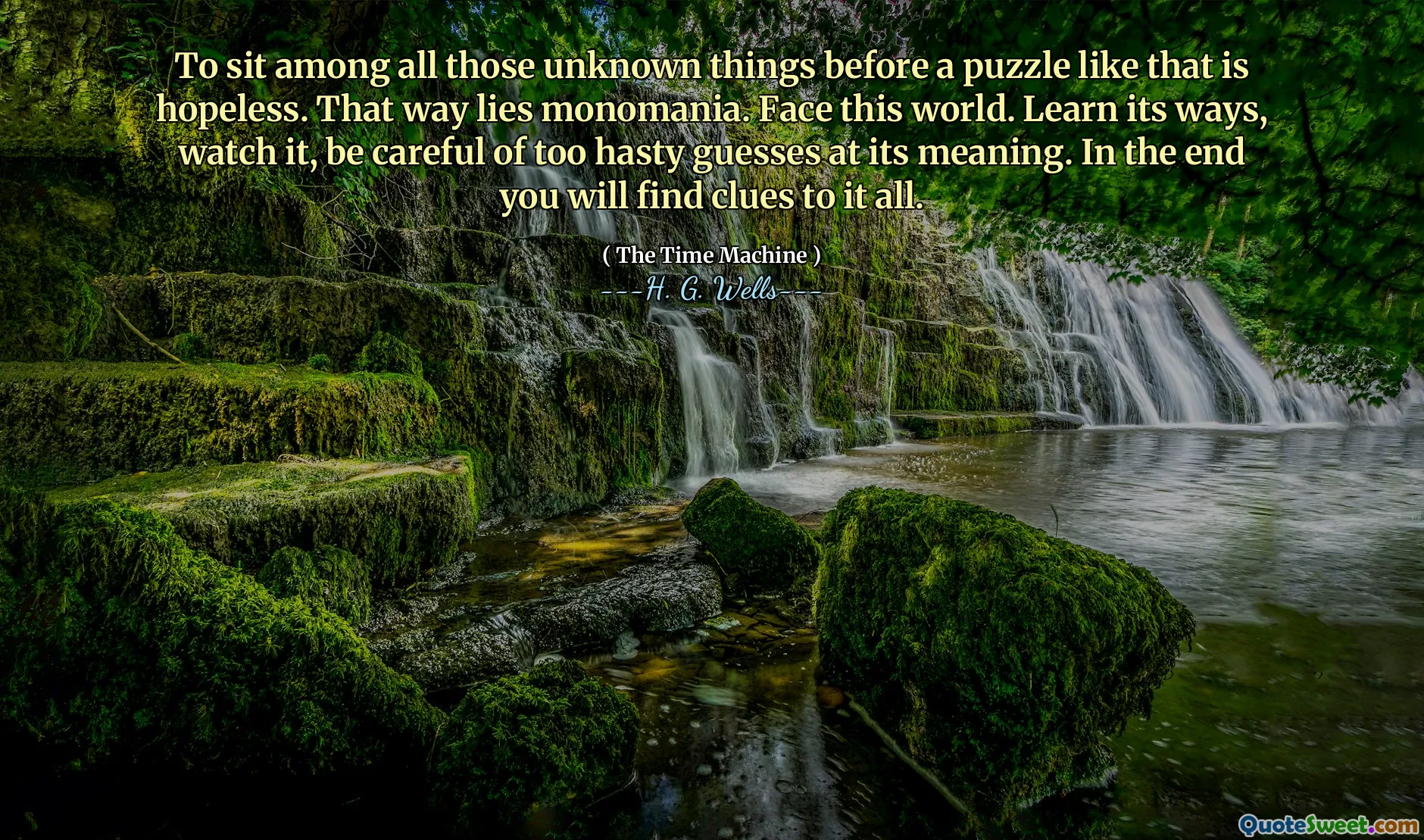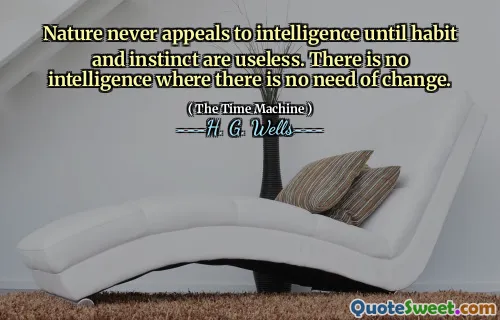
To sit among all those unknown things before a puzzle like that is hopeless. That way lies monomania. Face this world. Learn its ways, watch it, be careful of too hasty guesses at its meaning. In the end you will find clues to it all.
In H.G. Wells' "The Time Machine," the protagonist confronts the daunting challenge of deciphering a complex and unfamiliar world. He acknowledges the futility of trying to grasp the entirety of this intricate puzzle all at once, advocating instead for a methodical approach. In doing so, he warns against the dangers of becoming overly fixated on singular ideas, as this can lead to a narrow perspective and obsession.
The emphasis is on the importance of observation and patience when trying to understand the world. By being cautious with interpretations and avoiding rushes to judgment, one can gradually uncover the underlying truths and clues embedded in reality. This thoughtful exploration ultimately reveals a deeper comprehension of existence, encouraging a balance between curiosity and mindfulness in the pursuit of knowledge.











